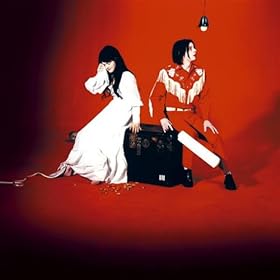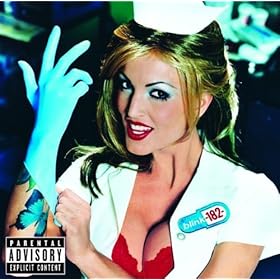
I used to watch Thritysomething during its original run and on re-runs on Lifetime because, well, I’m a sensitive new age guy, I guess.Á‚ Maybe it was the fact that my girlfriend (who later became my wife) was a big fan of the show and I just kind of got sucked into it. Or maybe, it’s because the show was so full of navel-gazing angst that, for me, it was hard to resist.

One of the minor characters who was integral to the narrative arc was Miles Drentell — the owner of D.A.A.Á‚ D.A.A. was one of the most influential advertising agencies in Philadelphia, and it seemed that the weird world of manipulation/advertising was wrought, in part, by Miles.Á‚ During one episode, he and Michael Steadman (moral anchor of the series) were eating dinner with some mucky mucks from the heartland and talking about an ad campaign. Steadman and the Midwest mucky mucks were hitting it off, and Miles, increasingly alienated by the conversation, blurted out an aphorism that my wife and I quote from time to time:Á‚ “The Decimalization of time is so arbitrary…”Á‚ And so it seems to be when it comes to popular music.Á‚ If I say “The “Ëœ70s” what comes to mind when it comes to music?Á‚ The folksy stuff of the early “Ëœ70s?Á‚ Disco?Á‚ Arena rock?Á‚ How “Ëœbout the “Ëœ80s? New Wave? Michael Jackson? Rap?Á‚ Richard Marx? The “Ëœ90s?Á‚ Grunge?Á‚ Rap?Á‚ Boy Bands? Britney?Á‚ Okay, enough questions … I think you get my drift.
Well, what about “The 2000s?” (Crap, I thought I was through with questions!) It’s a decade that hasn’t really defined itself with a genre of music the way its predecessors did. But here we are at 2009, and if we’re slaves to the notion of decades, then 2010 means it’s the start of a whole new world.Á‚ Could it be because of the way in which the Internet has fragmented music consumption, radio taking fewer and fewer risks when it comes to formats, and MTV creating niche channels that cater to certain demographic groups, that the power of a medium to frame the tastes in popular music has resulted in “The 2000s” not having defining characteristics that are easily distilled into unique one or two-word terms?
Perhaps.Á‚ So, let’s test this theory and mix six top 40 songs from random years in this decade and see what’s what.Á‚ And because this is an entirely scientific experiment with a margin of error of + or – 90%, I’ll disclose my methodology up front:Á‚ I asked my daughter to blurt out six random years off the top of her head while she was playing the video game Spore.
So here we go!
“Seven Nation Army,” the White Stripes (download)
The year was 2003.Á‚ The year the United States invaded Iraq to ostensibly battle a terrorist organization that attacked the United States whose base of operations was in … Afghanistan. Huh? On the music front, our friends from the White Stripes had a songs that would have had a perfect title for the “Coalition of the Willing” if the number of countries involved in the invasion numbered seven.

“SexyBack,” Justin Timberlake (download)
Where has our 13-year-old girl sent us now?Á‚ Could it be? Yes, it’s 2006, and yeah, it’s Justin bringing sexy back.Á‚ Like most people, I didn’t realize that sexy had gone away, but it sure did when I started singing a counterpart song to my co-workers that year.Á‚ What’s the song?Á‚ Well, the lyrics start with “I’m bringing hairy back” as I pretend to take off my shirt. If you’re a guy, and want to clear the room, just try singing a little “HairyBack” and soon you’ll be alone.

“Let’s Get It Started,” Black Eyed Peas (download)
Wow! Have we gone back in time, or is it still 2006?Á‚ Nope. It’s 2004, John Kerry is going to get swift boated by the truth squad in the presidential election, blogging was something that young people were early adopters of, but like Facebook, soon became the province of the over-30 set. But the Black Eyed Peas?Á‚ Well, they first got retarded with this song, and then, uh, got the party going with this more mass appeal version.
“South Side,” Moby feat. Gwen Stefani (download)
Before Gwen became a SUPERSTAR, and was just “Gwen from No Doubt,” she was making moves to establish herself as a brand that was separate from No Doubt.Á‚ Teaming up with Brian Setzer, then with Moby, and a year later with Eve, it seemed like she was trying on musical styles like she would various dresses in a boutique.Á‚ And while “South Side” didn’t break any new ground musically, it was a kind of a quid pro quo for each performer in that Gwen got some indie cred, while Moby got mainstream exposure.Á‚ Did it establish a genre of music that other musicians hitched their wagon to? Not really.
“All the Small Things,” blink-182 (download)
Puerile. That’s the word that first came to mind when I first heard Blink’s Enema of the State — and I loved every minute of it.Á‚ With Blink and Lit on the scene, I really thought that their puerile punk pop sound was going to dominate the new decade.Á‚ But the shelf life of their music was short-lived when it came to mainstream trends. Ah well …
“Paper Planes,” M.I.A. (download)
There’s something about music in the Internet age that has very little staying power.Á‚ Here today, gone five minute later seems to occur more and more.Á‚ M.I.A. is a good example.Á‚ “Paper Planes” has had more success on film soundtracks than radio or viral distribution methods.Á‚ But more importantly, this song has many ingredients that can establish a musical trend:Á‚ it’s a ballsy tune, catchy, and stylistically novel.Á‚ Yet, where are the M.I.A. clones today?
Postscript
Kids, if this little excursion has taught us anything it’s that the A.D.D. nature of this decade is the genre; it’s a decade where trends emerge and recede into history with great rapidity. And while one can point to rap/hip-hop, emo, pop punk, and goth as popular musical forces, they are not genres that emerged in “The 2000s.” Rather, they are evergreen genres where new wine can be discovered in old skins.Á‚ Sure, one can argue that all popular music is derivative, and I’m not about the stand on my soapbox and preach this or that genre was totally and unequivocally original. But, if you’re a devoted reader to Popdose, it’s not difficult to see that the popularity of a decade like the “Ëœ80s, or the reverence many have of the musical giants of the “Ëœ60s and “Ëœ70s signals that the music of those decades — and decades prior — have a cultural longevity because of certain unifying factors. Radio, TV, and even record stores have unique powers to frame tastes — for better or worse. And the cultural power of the Internet is one where fragmentation and interaction dominate.Á‚ These are not bad things in themselves. Rather, fragmentation and interaction has – in a way — allowed more equal access for space where artists can find an audience. That access is something Radio, TV and even record stores limited.Á‚ They were limited by bandwidth, channels, and square footage.Á‚ They were limited by the politics of the gatekeepers. And they were limited by the cost of investing in an unknown artist and seeing how the music buying public would react to their creations. Unity and fragmentation lead to their own peculiar excesses, but as we bounce from pole to pole, I’m fairly certain that we’ll find a steady state where a musical trend that defines a decade will flourish.Á‚ Clearly, it’s not this decade … perhaps it will be the next.








Comments